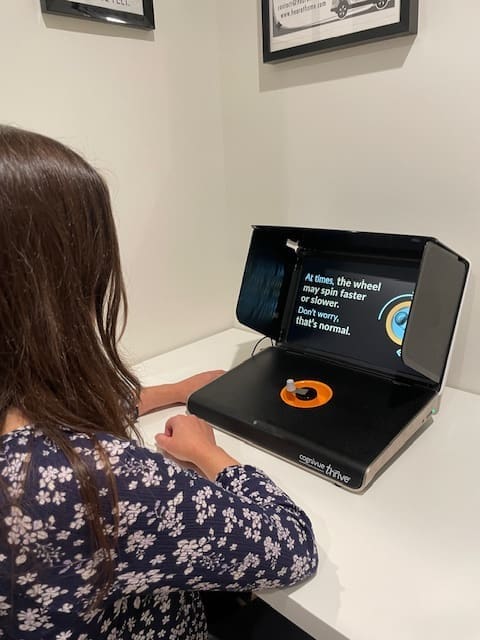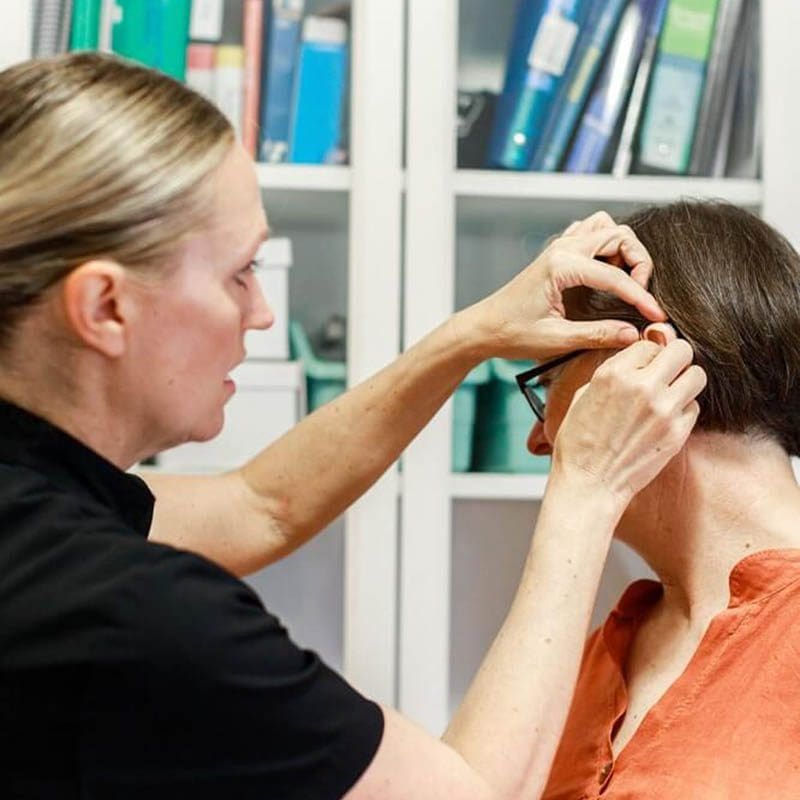Promoting Cognitive Health with Hear at Home Hearing Clinic
Cognitive function—our ability to think, remember, and solve problems—can naturally decline as we age. This process, known as age-related cognitive decline, varies widely from person to person. It can range from occasional forgetfulness to more severe daily life issues. However, some of these changes in cognition may have treatable causes. Conditions such as vitamin B deficiency, thyroid problems, depression, medication side effects, and even untreated hearing loss can contribute to cognitive decline. Early recognition and intervention can make a significant difference.
Take Control Of Your Memory And Brain Health
Early detection of cognitive decline is crucial for planning and intervention. An early diagnosis of conditions like dementia allows for better disease management, including more effective use of medications and the opportunity to make informed decisions about your future. It also empowers you and your family to access resources, participate in research, and reduce the stigma associated with cognitive decline.
Understanding Mild Cognitive Impairment
Hearing loss is often overlooked as a factor in cognitive decline, yet untreated hearing loss can significantly affect cognitive function. The brain has to work harder to process sound, which can strain cognitive resources and potentially lead to memory problems and other cognitive issues. Treating hearing loss with hearing aids or other interventions can help reduce this cognitive load, improving overall brain health and quality of life.
The Impact of Hearing Loss on Cognitive Health
Cognitive function—our ability to think, remember, and solve problems—can naturally decline as we age. This process, known as age-related cognitive decline, varies widely from person to person. It can range from occasional forgetfulness to more severe daily life issues. However, some of these changes in cognition may have treatable causes. Conditions such as vitamin B deficiency, thyroid problems, depression, medication side effects, and even untreated hearing loss can contribute to cognitive decline. Early recognition and intervention can make a significant difference.
Cognitive Screening
The Role of Cognitive Screening
Consulting with a healthcare professional is crucial if you’re concerned about your cognitive health. At Hear at Home, we take pride in offering cutting-edge cognitive screening that is not widely available elsewhere. We are the only clinic in the area equipped with the state-of-the-art Cognivue device. This advanced tool allows us to provide a comprehensive and personalized assessment of your cognitive function, setting us apart as a leader in cognitive health services.
Why Early Detection Matters
Early detection of cognitive decline is crucial for planning and intervention. An early diagnosis of conditions like dementia allows for better disease management, including more effective use of medications and the opportunity to make informed decisions about your future. It also empowers you and your family to access resources, participate in research, and reduce the stigma associated with cognitive decline.
The Impact of Hearing Loss on Cognitive Health
Hearing loss is often overlooked as a factor in cognitive decline, yet untreated hearing loss can significantly affect cognitive function. The brain has to work harder to process sound, which can strain cognitive resources and potentially lead to memory problems and other cognitive issues. Treating hearing loss with hearing aids or other interventions can help reduce this cognitive load, improving overall brain health and quality of life.

How Does It Work?
How Cognivue Works
The Cognivue device is a cutting-edge tool that evaluates critical cognitive domains, including memory, visual processing, executive function, and reaction time. The test is user-friendly, interactive, and noninvasive, making it suitable for our clinic and mobile environments. The device adjusts the difficulty of tasks in real time based on your performance, ensuring a tailored and accurate assessment.
1
Test Setup
The test involves simple tasks such as recognizing shapes, colours, and numbers. As you progress, the difficulty adapts to your cognitive abilities.
2
Test Duration
The Cognivue test typically takes 10-15 minutes. It’s designed to be quick yet thorough, providing a comprehensive assessment of your cognitive function without requiring a significant time commitment. This makes it a convenient option for individuals who want to monitor their cognitive health in our clinic or through our mobile services.
3
Results Interpretation
Once the test is complete, Cognivue generates a detailed report comparing your results to normative data. This helps determine whether your cognitive abilities are within the expected range for your age or if there might be early signs of cognitive decline.
Take Action
Today
At Hear at Home, we are committed to supporting your cognitive health. Our cognitive screenings, powered by the Cognivue device, offer a quick and accurate assessment of your cognitive function. Whether you’re noticing early signs of cognitive decline or seeking peace of mind, our screenings provide valuable insights.
Don’t wait until symptoms worsen. Contact us today to schedule your cognitive screening and take the first step toward preserving your cognitive health. Together, we can work to change the course of cognitive decline and improve the quality of life for those affected.
By staying proactive, you can continue to live a meaningful and fulfilling life, even in the face of cognitive challenges. Let Hear at Home Mobile Hearing Clinic be your partner in this important journey.
Dementia Statistics in Canada
Dementia is an increasingly prevalent condition in Canada, with numbers expected to rise significantly in the coming decades. Here are some key statistics:
-
- Current Numbers: Approximately 597,000 Canadians are currently living with dementia. This number is expected to grow as the population ages.
- Future Projections: By 2030, nearly 1 million Canadians are projected to be living with dementia. By 2050, this number could exceed 1.7 million.
- Impact on the Elderly Population: Dementia primarily affects older adults. Among those aged 65–79 years, about 43 out of every 1,000 individuals are affected. In the 85 years or older age group, the rate increases dramatically, with 212 out of every 1,000 individuals living with dementia.
These rising numbers underscore the importance of early detection and proactive management of cognitive health. Using tools like the Cognivue device, we can identify cognitive decline early, potentially slow its progression, and improve the quality of life for those affected.

Contact Hear at Home To Book An Appointment
Contact us today to schedule your cognitive screening and take the first step toward preserving your cognitive health. Together, we can work to change the course of cognitive decline and improve the quality of life for those affected.
To schedule an cognitive screening appointment, complete and submit the adjacent form and we will call you back to set up an appointment.
"*" indicates required fields
Patient Stories
No matter what happens in the world, these people remain the centre of ours.
Blog


